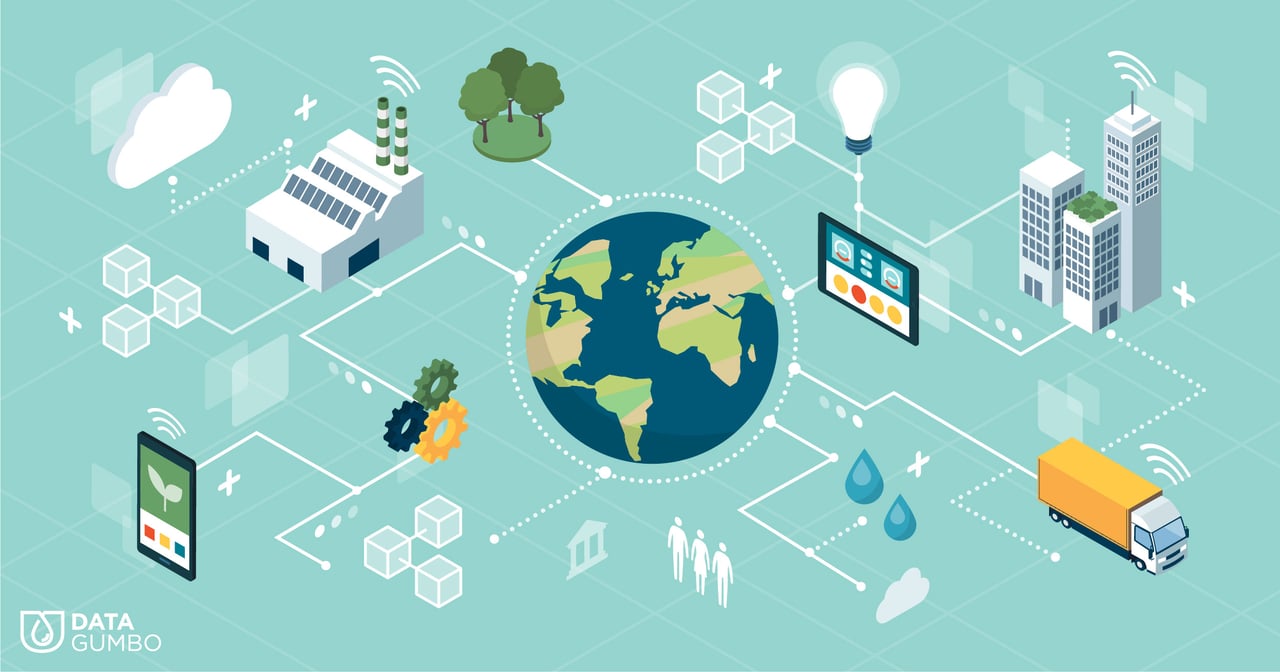ESG Reports Need to Be Auditable, Automated and Transparent
Investors, regulatory agencies, customers and society expect definitive proof of corporate environmental, social and governance (ESG) performance yet little transparency surrounding accurate sustainability impact data exists today. For financial records, general ledgers are subject to audits as a system of record but the same isn’t true for ESG data and supporting carbon reduction claims.
Throwing auditors and data assurance consultants at the problem to solve ESG data issues will not yield cost-efficient, repeatable or scalable processes that provide a company with the ability to bench mark and measure ESG progress. Additionally, current manual-workflows that lean heavily on narrative reporting information culled from spreadsheets are cheap but indefensible.
Current Challenges for an ESG System of Record
A range of obstacles exist for ESG data capturing and reporting methodologies, including but not limited to:
- Must Capture Actual Field Data
An ESG system of record must be able to incorporate Internet of Things (IoT) and other data captured across supply chain, manufacturing and delivery processes to provide concrete and accurate evidence. Emissions must be calculated from actual measurements (not estimations), and data should be stored in an immutable system to support defensible claims. - Able to Interface with Existing Systems
Much of the social and governance data exists in HR, financial and operational systems. The ESG system must record a copy of the specific required data for permanent record while respecting all regional data privacy laws. - Capture Scope 1, 2 & 3
Capturing Scope 1, 2 and 3 data presents a massive problem of complexity, scale and repeatability. Reporting across a company’s value chain of counterparties is infinitely more difficult as a company must provide data from multiple systems and multiple vendors, all of which can change month to month. Additionally, the further into the supply chain, the more unwieldy the information may be; for example based on voluntary reporting or siloed data that can’t be corroborated. - Keep Private Data Private
The drive for public reporting should not expose a company's private data. An ESG system of record must be able to use a mechanism for recording the underlying private transactions and tying information to public reporting. - Support Numerous Standards
No ESG system should have to reinvent its reporting capabilities for each and every standard that exists. A system of record should be able to interface with all established standards bodies.
Challenges Solved with GumboNet ESG
The solution to these challenges must be scalable and simple enough for an executive, regulator or other stakeholder to use on an iPad or tablet. It should be easy to look up a company and verify audited ESG reporting and scoring. GumboNet ESG is the answer.
This data used by companies in smart contracts to automate invoicing and payments and wring out process inefficiencies is the same data needed to measure sustainability such as biodiversity impact, operational impact, greenhouse gas emissions (GHG), workforce health and safety and additional metrics. As an automated and accurate sustainability measurement solution that ties a company’s operational data to ESG standards reporting, the result is real-time verifiable environmental performance monitoring with GumboNet ESG.
Clear Winner for ESG Reporting
Using configurable smart contracts, GumboNet ESG taps a company's own operational field data and that of their supply chain’s to produce an accurate picture of environmental impact enabling Scope 1, 2 and 3 reporting. All data is secured on a private, permissioned blockchain and exposed via public certificates, and supports multiple standards bodies including the Sustainability Accounting Standards Board (SASB), Global Reporting Initiative (GRI) and the Open Group Open Footprint Forum.
GumboNet ESG provides a simple interface that serves as a comprehensive ESG system of record. It is powered and secured by smart contracts and blockchain that enable ESG reporting to be auditable, automated and transparent addressing the need for faster and better environmental impact data.


